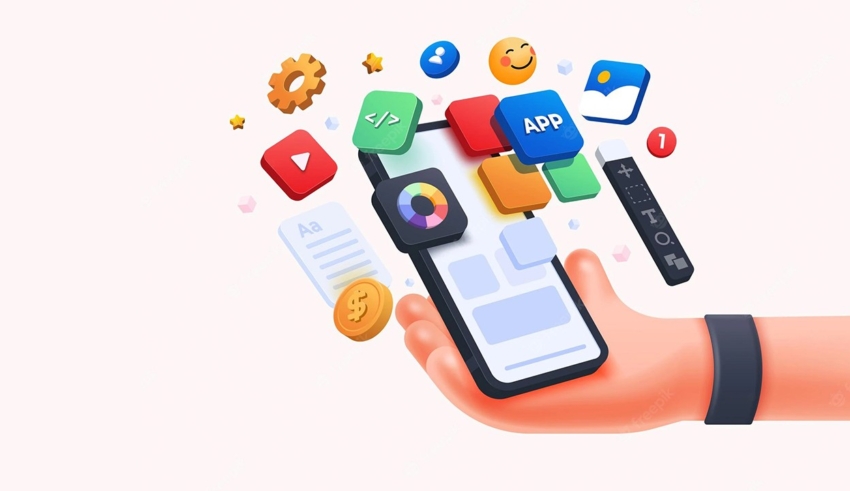
Mobile applications have become an integral part of our daily lives. From social networking and entertainment to banking and education, apps serve as powerful tools that simplify tasks, enhance productivity, and provide endless entertainment. With millions of apps available on platforms like Google Play Store and Apple App Store, the way we interact with technology has drastically changed over the years.
One of the most significant areas of app development has been in the gaming and entertainment sector. People can now enjoy high-quality gaming experiences on their smartphones, including casino apps that offer real-money gaming experiences. Platforms like Casino Mary’s mobile casino apps allow users to play casino games on the go, bringing a traditional pastime into the digital age.
In this article, we’ll explore the evolution of mobile apps, their impact on various industries, and what the future holds for app technology.
Table of Contents
The Early Days of Mobile Apps
Mobile apps have come a long way since their inception. In the early 2000s, mobile phones were limited to pre-installed applications like calculators, calendars, and basic games such as Snake on Nokia devices. These apps were simple, lightweight, and functioned as basic utilities.
The real revolution began with the introduction of smartphones, particularly when Apple launched the iPhone in 2007. This event marked a turning point for mobile technology, leading to the birth of the App Store in 2008. Google quickly followed with the launch of the Android Market (now Google Play) the same year. These platforms allowed third-party developers to create and distribute apps, kickstarting the mobile app boom.
How Mobile Apps Have Transformed Different Industries
Over the years, mobile apps have disrupted multiple industries, revolutionizing how businesses operate and how consumers interact with services.
1. Social Media and Communication
Social media apps like Facebook, Instagram, Twitter, and TikTok have reshaped the way people connect. Messaging apps like WhatsApp, Telegram, and Messenger allow instant global communication, eliminating geographical barriers. Video conferencing tools such as Zoom and Google Meet have made remote work and virtual meetings more accessible.
2. Finance and Banking
Gone are the days when people had to visit a bank for every transaction. Mobile banking apps and fintech solutions like PayPal, Venmo, and Google Pay have made financial transactions faster and more secure. These apps enable users to pay bills, transfer money, and even invest in stocks from their mobile devices.
3. Gaming and Entertainment
The gaming industry has seen exponential growth due to mobile apps. Games like PUBG Mobile, Call of Duty Mobile, and Candy Crush Saga have attracted millions of users worldwide. Mobile casino apps have also gained popularity, allowing players to enjoy real-money gaming experiences. For example, Casino Mary’s mobile casino apps offer players access to a wide range of casino games with the convenience of playing from anywhere.
4. E-Commerce and Online Shopping
E-commerce giants like Amazon, eBay, and Alibaba have leveraged mobile apps to provide seamless shopping experiences. With a few taps, users can browse products, read reviews, and make purchases from their smartphones. This convenience has contributed to the rapid growth of online shopping.
5. Health and Fitness
Health-conscious individuals now rely on mobile apps to track their fitness goals, monitor their diet, and even consult doctors remotely. Apps like MyFitnessPal, Fitbit, and Headspace help users maintain a healthier lifestyle by providing personalized insights and recommendations.
6. Education and E-Learning
With the rise of e-learning platforms, mobile apps have made education more accessible than ever. Apps like Duolingo, Coursera, and Khan Academy provide learning materials on various subjects, allowing users to acquire new skills at their own pace.
The Role of AI and Machine Learning in Mobile Apps
Artificial Intelligence (AI) and Machine Learning (ML) have played a crucial role in the advancement of mobile apps. Features like voice assistants (Siri, Alexa, Google Assistant), personalized recommendations (Netflix, Spotify), and smart chatbots have enhanced user experiences.
AI-driven apps analyze user behavior to offer customized content and predictive suggestions. For example, streaming services recommend movies based on viewing history, while shopping apps suggest products based on past purchases. This level of personalization keeps users engaged and improves app functionality.
The Future of Mobile Apps
As technology continues to evolve, the future of mobile apps looks promising. Here are some emerging trends that will shape the next generation of mobile applications:
1. Augmented Reality (AR) and Virtual Reality (VR)
AR and VR technologies are expected to transform mobile gaming, shopping, and real estate experiences. Apps like Pokémon GO have already demonstrated the potential of AR in gaming, while furniture retailers like IKEA use AR to help customers visualize products in their homes.
2. 5G Connectivity
With the rollout of 5G networks, mobile apps will become faster and more responsive. This advancement will improve streaming quality, enhance multiplayer gaming experiences, and enable real-time data processing.
3. Blockchain and Mobile Security
Blockchain technology is making mobile transactions more secure by ensuring data transparency and reducing fraud. Cryptocurrency wallets and decentralized finance (DeFi) apps are gaining traction as more users explore blockchain-based solutions.
4. Super Apps
Super apps, which combine multiple services into a single platform, are becoming increasingly popular. Apps like WeChat in China offer messaging, social media, and payment services in one app. This trend is expected to expand globally, making app ecosystems more interconnected.
Conclusion
Mobile apps have come a long way from simple utilities to powerful tools that influence every aspect of our lives. Whether it’s communication, finance, entertainment, or gaming, mobile apps have reshaped how we interact with technology.
With advancements in AI, AR, and 5G connectivity, the future of mobile apps looks exciting. As industries continue to innovate, users will have access to more efficient, secure, and engaging applications. Whether you’re streaming a movie, managing finances, or exploring casino gaming on mobile, the possibilities are endless.
As we move forward, one thing is certain—mobile apps will continue to evolve, bringing new opportunities and transforming the way we experience the digital world.















